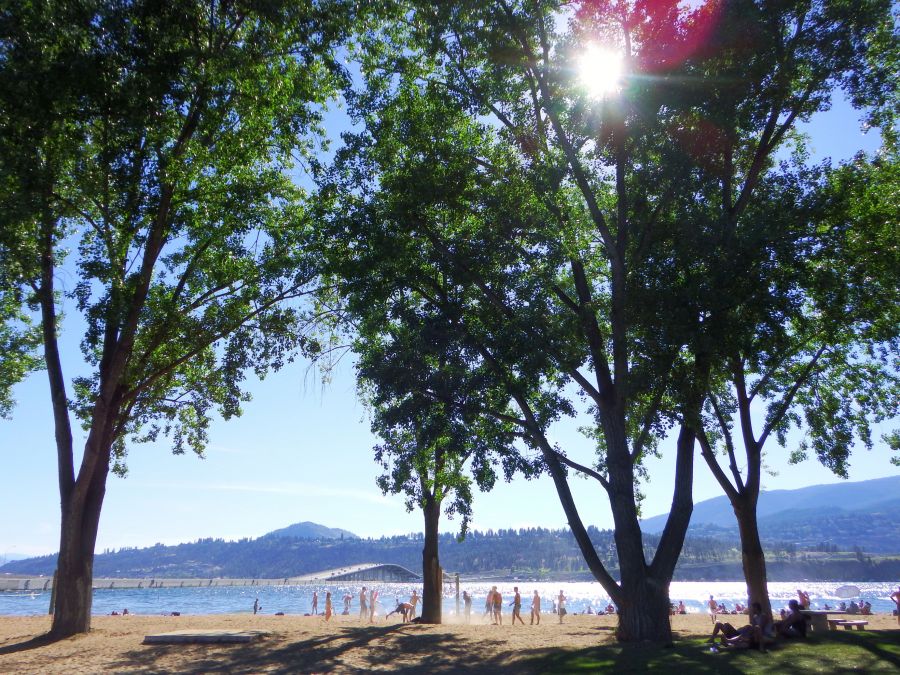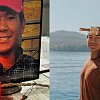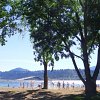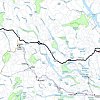While it's still spring for a little over two weeks, summer weather has started to arrive in the Okanagan and that means the lake and beaches will start to get busy.
That comes with safety concerns, however, as Okanagan Lake is statistically the deadliest lake in British Columbia when it comes to drowning.
That stat has reared its ugly head over the last week, as police recently pulled a pair of bodies from the lake in just a three-day span.
Around 11 am on Saturday, Vernon RCMP received a report of a missing person in Okanagan Lake near the Evely Recreation Site on Westside Road.
Police learned that a woman who was last seen swimming with her kayak the previous day had not been seen since.
Around 90 minutes after learning that she was missing, officers found her body in the water.
“She was not wearing a life jacket,” noted Cst. Chris Terleski.
Early Monday morning, there was a significant police presence at City Park in Kelowna after the RCMP received a report of a body in the water just offshore.
The RCMP Underwater Recovery Team was called in and they eventually pulled a male body from the lake.
Criminality is not suspected in either incident.

"The Okanagan's waterways are a cherished part of our community, offering endless opportunities for recreation," said Cpl. Allison Konsmo.
"However, the beauty of our lakes and rivers can sometimes mask inherent dangers. We urge everyone to make water safety a top priority this season."
Police say it’s crucial to be aware of potential hazards in lakes and rivers, and to take proactive steps to ensure a safe and enjoyable summer experience for everyone.
Here’s a comprehensive list of water safety tips provided by the RCMP for both swimmers and boaters to adhere by this summer:
- Wear a life jacket: This is the single most important safety measure. A properly fitted, Canadian-approved life jacket or personal flotation device should be worn by everyone on a boat, personal watercraft, or when engaging in activities like paddle boarding or kayaking, regardless of swimming ability. Drowning can happen silently and quickly.
- Supervise children closely: Children, especially young ones, should be actively supervised at all times when near or in the water. Designate a responsible adult to maintain constant visual contact.
- Never swim alone: Always swim with a buddy. Even strong swimmers can encounter unexpected currents or difficulties.
- Know your limits: Be realistic about your swimming ability and the conditions of the water. Cold water can rapidly reduce your endurance and strength.
- Beware of cold-water shock: Okanagan lakes can remain surprisingly cold, even on hot days. Cold water shock can quickly lead to gasping, hyperventilation, and loss of muscle control. Enter cold water gradually to allow your body to adjust.
- Don't drink and boat/swim: Alcohol and drugs impair judgment, coordination, and reaction time, significantly increasing the risk of accidents on or in the water.
- Check water quality advisories: Before heading out, check for any swimming advisories issued by Interior Health for specific beaches. These advisories are in place to protect public health from elevated bacteria levels. You can find this information on the Interior Health website or the City of Kelowna's public beaches page.
- Be aware of currents: Rivers and areas near dams can have strong, unpredictable currents. Obey all warning signs and stay clear of designated danger zones around hydroelectric facilities. Water levels can change rapidly near dams.
- Watch for boating traffic and hazards: Stay alert for other boats, personal watercraft, and submerged hazards like logs or rocks. Maintain a safe distance from other vessels.
- Clean, drain, dry: Help prevent the spread of aquatic invasive species, like zebra and quagga mussels, by thoroughly cleaning, draining, and drying all boats and gear before moving them between different bodies of water.
















